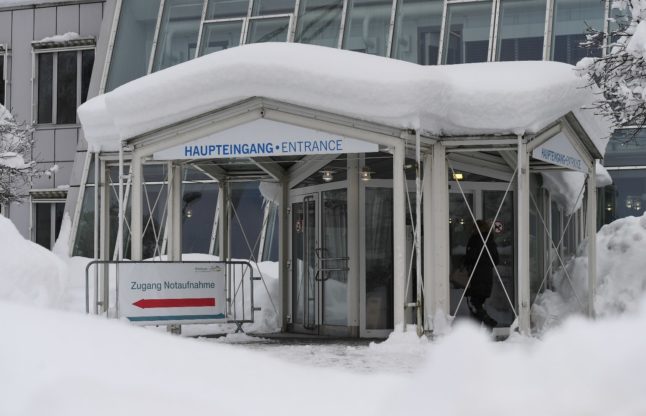At the hospital in Garmisch-Partenkirchen, known as a skiing and hiking destination situated at the foot of the Bavarian Alps, 52 patients and 21 employees had tested positive for Sars-CoV-2.
During the outbreak at the hospital, it had been suspected that an altered variant might have played a role in the new infections. This was confirmed in an interim report from Berlin's Charité on Monday, where samples are currently being examined.
However, it is still unclear whether the change is truly new and whether it has an impact on the rate of infection or the severity of the disease.
Since the beginning of the pandemic, several changes in the genetic sequences of the virus have been recorded worldwide. Currently, two variants (B.1.1.7 and B.1.351) initially detected in the UK and South Africa are considered to be of particular relevance for Europe.
These variants, also detected in parts of Germany, are thought to be highly contagious.
READ ALSO: Germany records first case of UK coronavirus strain
A new genome sequence?
The pathogen detected at the Garmisch-Partenkirchen hospital is not one of these two variants, explained Clemens Stockklausner, deputy medical director and head of pediatrics and adolescent medicine at the hospital.
There is no mutation at position 501 – this would be typical for the British and the South African mutation. However, a piece of the spike protein is missing at positions 69 and 70, he said.
“Now it depends on what other changes can be found in the genome of the virus to make an informed classification,” Stockklausner said.
Sequencing the entire genome takes about 10 days, he said. “We expect to hear back with more meaningful details by the end of January.”



 Please whitelist us to continue reading.
Please whitelist us to continue reading.
The mutated strain has a name, its called Pfizer/Bio-n-tech Vaccine
And those of you who think the vaccine is not killing people, read this, unless you think Bloomberg is a source of conspiracy theories.
https://www.bloomberg.com/news/articles/2021-01-16/norway-vaccine-fatalities-among-people-75-and-older-rise-to-29?sref=ZMFHsM5Z
Stop trying to scare people unnecessarily. There are risks from allergic reactions to vaccines, but much higher deaths related to infection from Covid-19. There isn’t conclusive evidence that all the deaths were related to the vaccine either.
You people should stop peddling anti vaccine, anti science nonsense.
I dont need to scare people, MSM does a good enough job of fear mongering.
If the Vaccine works so wonderfully, why are health care workers refusing to take it, and why does the government need to incentivize them to get vaccinated?
https://www.nytimes.com/2021/01/14/business/covid-vaccine-health-hospitals.html